Wheat visits D.C. Washington growers visit congressional delegation, USDA; participate in NAWG meetings
2025February 2025
By Trista Crossley
Editor
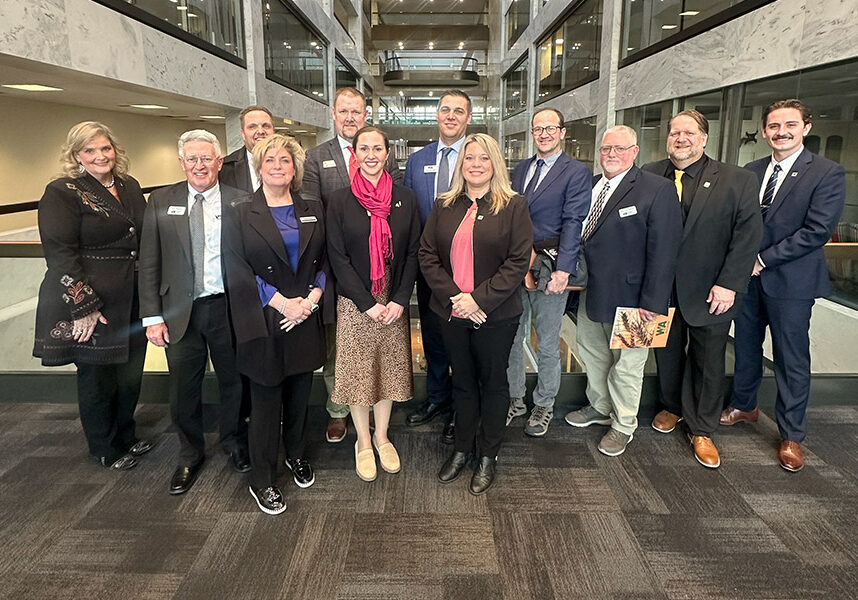
Advocacy for Washington wheat growers doesn’t happen just at the state level. The Washington Association of Wheat Growers (WAWG) also spends time in Washington, D.C., visiting with the state’s congressional delegation and working with the National Association of Wheat Growers (NAWG) on concerns at the national level. Wheat growers’ first trip of the new year to the nation’s capital took place in mid-January, where they took part in NAWG’s winter meeting and presented Washington growers’ national priorities to members of Congress during Hill visits.
“It was a very successful trip and a great way to kick off the new year,” said Michelle Hennings, WAWG’s executive director. “We have several new House members representing Washington that we introduced ourselves to. Our main message to Congress was the importance of getting farm bill legislation passed. While we are thankful for the one-year extension, that is a temporary fix, and farmers need the certainty that a farm bill provides.”
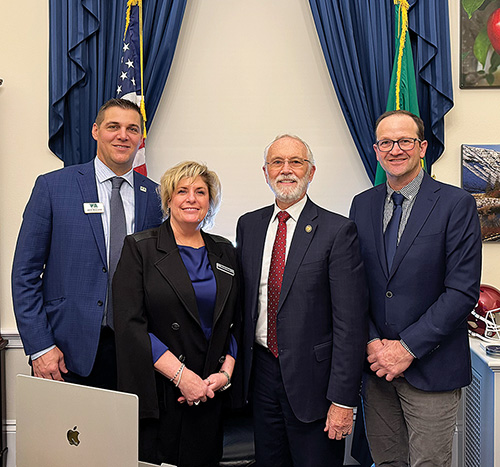
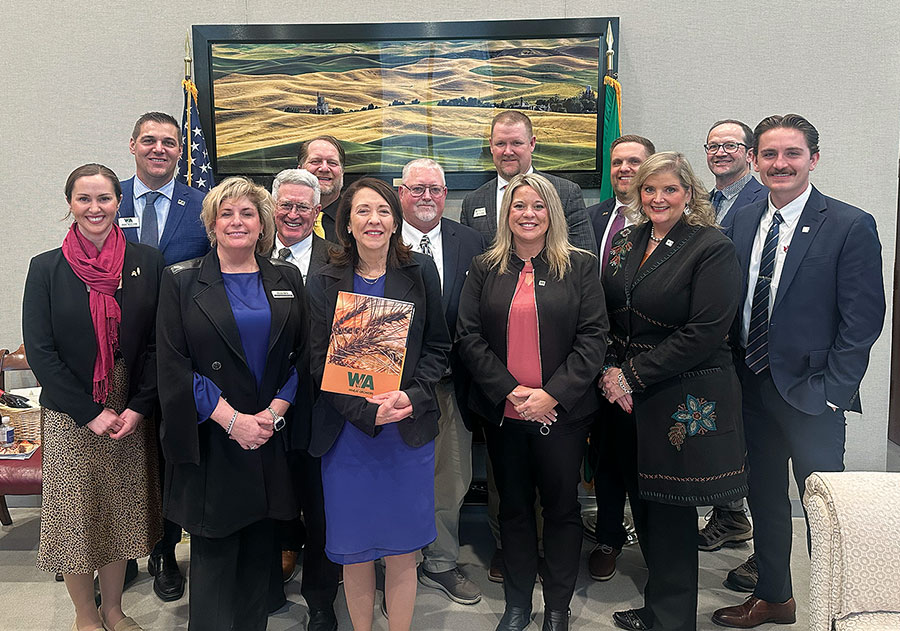
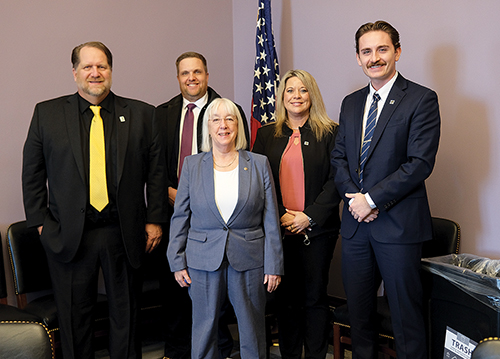
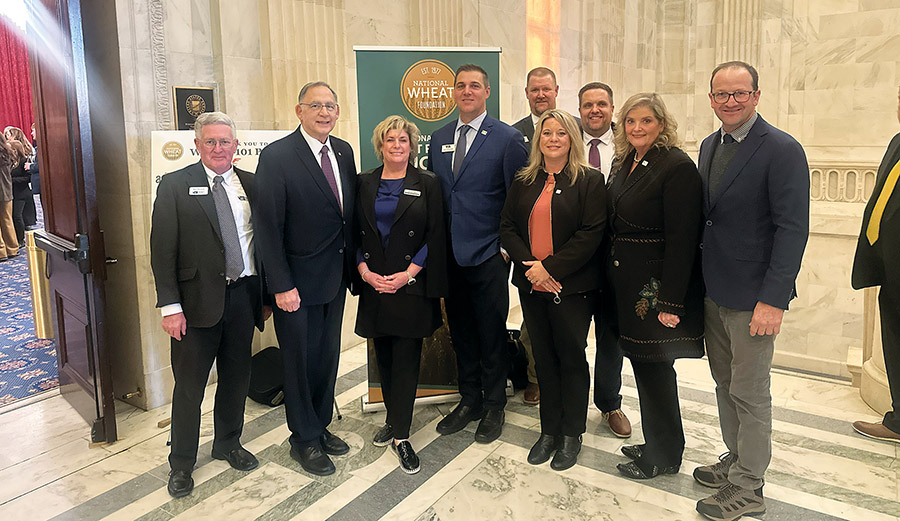
During their congressional visits, wheat growers discussed the state of the ag economy, commodity prices vs. input costs, the importance of trade agreements to Washington wheat growers, and the need for continued research funding. Growers reiterated the importance of the lower Snake River dams to the region’s economy and transportation network. Growers also met with several U.S. Department of Agriculture (USDA) agencies, including the Farm Service Agency, the Risk Management Agency, and the Natural Resources Conservation Service.
NAWG activity included meetings of several committees and a board meeting. WAWG President Jeff Malone sits on the Domestic Trade Committee, and WAWG Past President Anthony Smith sits on the Environment and Research Committee. Klickitat grower Andy Juris was elected to serve on NAWG’s Budget Committee.
At the January WAWG board meeting prior to leaving for D.C., board members refined and voted on this year’s national priorities. Those priorities cover food security, wheat growers’ markets, the environment, infrastructure, research, and pesticides.
Preserving food security
WAWG strongly supports modernizing future farm bills and continuing to offer agriculture and nutrition support programs.
WAWG supports a do-no-harm approach, which includes maintaining the current structure of the crop insurance program and current cost-share levels. Farmers pay their portion of the crop insurance premium, and without cost-share support, coverage would be cost-prohibitive, and the system would not function effectively. Without that safety net, it causes uncertainty for the future of agriculture and for the safe, reliable, and abundant food supply the American public currently experiences.
WAWG supports the reauthorization of the farm bill and to make necessary adjustments to Price Loss Coverage (PLC) and Agriculture Risk Coverage (ARC) so they can function effectively. The price and yield functions of ARC formulas should be adjusted so it can be a viable option for producers. The current $5.50 PLC reference price is not an adequate safety net for wheat production. It neither covers the cost of production, nor does it take input costs into account.
WAWG supports prioritizing working lands conservation programs in the conservation title. Voluntary programs have functioned well and provided an incentive to producers to undertake practices that are good for the environment and for their operations.
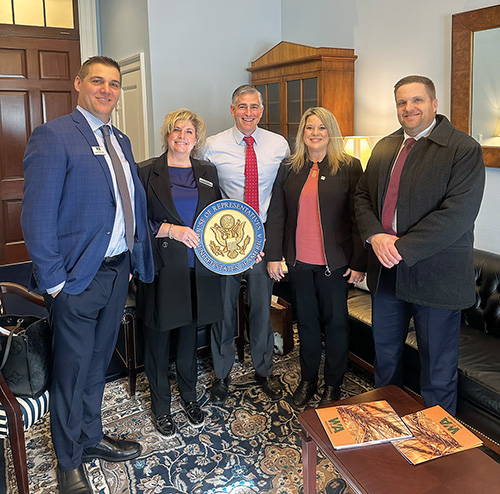
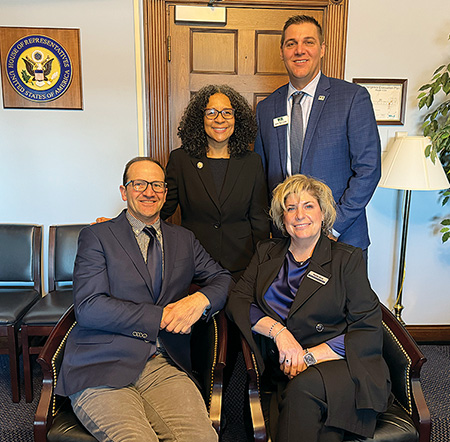
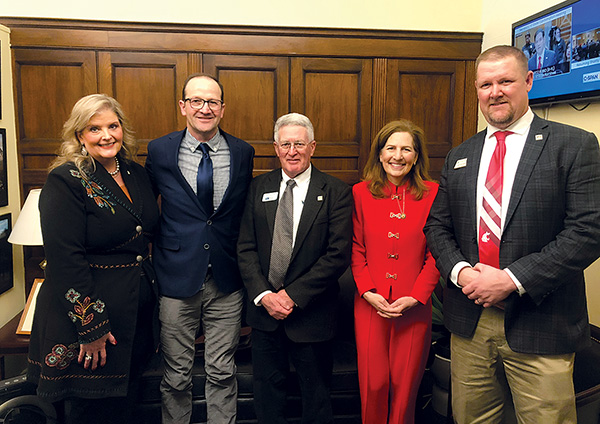
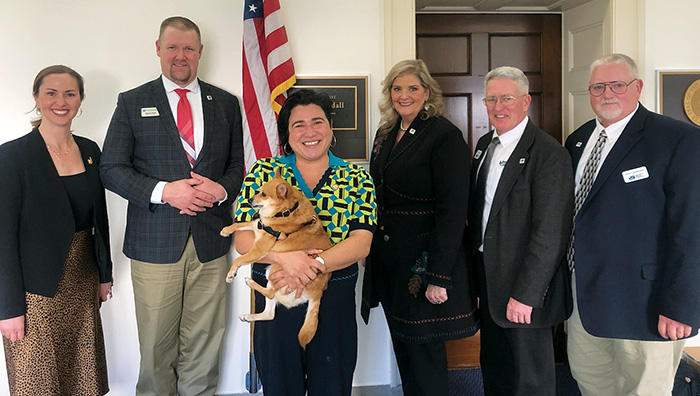
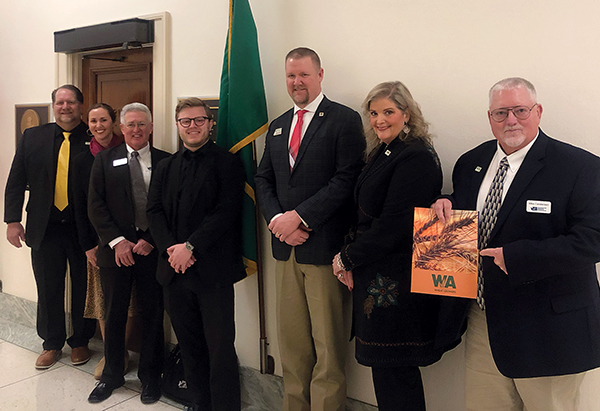
Protecting our markets
Funding through the Agricultural Trade Program (ATP) has been a boost to USDA cooperators, such as U.S. Wheat Associates, to help them operate at the needed capacity to maintain robust market presence for U.S. wheat farmers in the face of well-funded global competitors. WAWG supports continued and increased strong federal funding through the Market Access Program (MAP) and Foreign Market Development (FMD) Program to maintain the progress achieved with the ATP funds.
WAWG supports purchasing U.S. wheat for U.S. food aid programs, rather than purchasing wheat from competitors.
WAWG supports full implementation and enforcement of existing trade agreements to allow fair trade to occur within the export marketplace.
WAWG strongly supports the enforcement of sanitary and phytosanitary agreements with its trade partners.
Protecting our environment through sustainable practices
WAWG supports climate or sustainability legislation that is voluntary, incentive-based, and recognizes the unique and varied landscapes and climates of wheat production. The wheat industry should be fully involved in discussions of any policy or legislation relating to climate change, and sound science demonstrating agriculture’s environmental benefits should be considered.
Promoting and protecting our infrastructure
WAWG supports keeping the lower Snake River dams intact as they are vital to Washington and the nation’s economy and transportation infrastructure. WAWG also supports funding for maintaining the Columbia River System. Removal of the four lower Snake River dams would significantly increase carbon emissions that contribute to climate change and jeopardize health, safety, and livelihoods in already economically fragile local and regional economies. WAWG supports the findings in the current 2020 federal EIS and opposes any state, legislative or administrative effort to remove or disrupt the Snake River dam system.
WAWG supports funding to maintain and improve Washington road, river, and rail systems.
WAWG supports action regarding the Columbia River Treaty, which protects the viability of U.S. navigation, hydropower, irrigation, and flood control.
Protecting food systems with safe, innovative pesticides
WAWG opposes cancelling crop protection product labels or uses unless equivalent replacement products are available. We support science-based research in these products.
WAWG supports the professional use of pesticides and best management practices for their use.
WAWG opposes legislation that would restrict or limit the use of pesticides through bans or by setting residue tolerance levels that are not based on science.
Innovation, research, sustainable food systems
WAWG supports incremental funding increases for USDA that cover mandatory pay costs and the rising costs at ARS research facilities.












